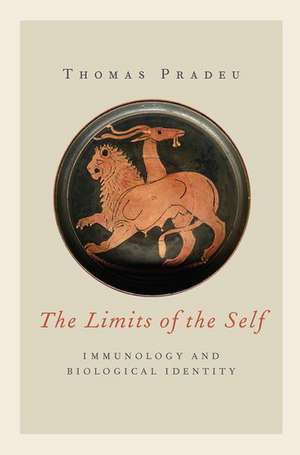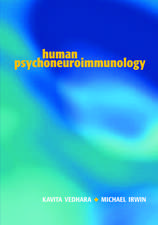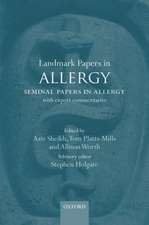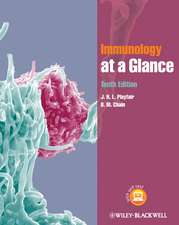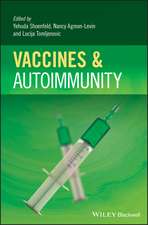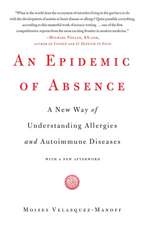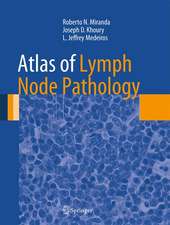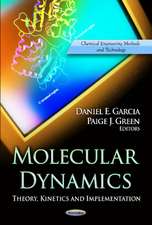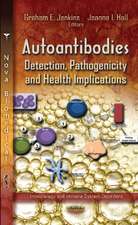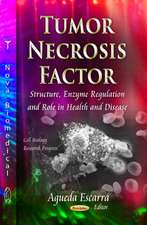The Limits of the Self: Immunology and Biological Identity
Autor Thomas Pradeu Traducere de Elizabeth Vitanzaen Limba Engleză Paperback – 31 ian 2019
| Toate formatele și edițiile | Preț | Express |
|---|---|---|
| Paperback (1) | 278.46 lei 31-37 zile | |
| Oxford University Press – 31 ian 2019 | 278.46 lei 31-37 zile | |
| Hardback (1) | 591.43 lei 31-37 zile | |
| OUP USAOUP USA – 22 mar 2012 | 591.43 lei 31-37 zile |
Preț: 278.46 lei
Preț vechi: 322.21 lei
-14% Nou
Puncte Express: 418
Preț estimativ în valută:
53.28€ • 55.77$ • 44.35£
53.28€ • 55.77$ • 44.35£
Carte tipărită la comandă
Livrare economică 19-25 martie
Preluare comenzi: 021 569.72.76
Specificații
ISBN-13: 9780190869571
ISBN-10: 0190869577
Pagini: 314
Dimensiuni: 140 x 208 x 20 mm
Greutate: 0.32 kg
Editura: Oxford University Press
Colecția OUP USA
Locul publicării:New York, United States
ISBN-10: 0190869577
Pagini: 314
Dimensiuni: 140 x 208 x 20 mm
Greutate: 0.32 kg
Editura: Oxford University Press
Colecția OUP USA
Locul publicării:New York, United States
Recenzii
... anyone interested in the fantastic and bewildering world of biomolecular recognition will be richly rewarded by this book.
The topic and the thesis of this book are both of great philosophical interest and practical significance. Some of the most important medical questions, most obviously around cancer and the action of pathogens, are being transformed by contemporary molecular biology. But these developments cannot be properly understood without an adequate conception of the immune system the failure of which is a basic assumption of our interpretation of these pathologies. Philosophical discussions of immunology are few and far between; but if anyone thought this was because the topic was philosophically uninteresting, this book will change their minds. The dynamic conception of the immune system that Pradeu proposes has vital implications for the meaning of health and illness and even for our conception of the organism. It should be widely discussed by philosophers of biology, but also by the biomedical scientists whose work it addresses.
A noteworthy contribution to immunology's abundant theoretical literature.
Thomas Pradeu's The Limits of the Self represents a sophisticated analysis of how the self can be defined in terms of the immune system and how this strictly biological view and inform the philosophical concept...Pradeu's Continuity Theory is arguably the clearest alternative to Burnet's self/non-self model.
Thomas Pradeu has joined the small cadre of those studying the philosophical significance of immunology and assumed the task of rectifying this neglect. In a text that provides an up-to-date summary of the key features of immunological theory and places those findings into a philosophical context that has framed previous debates, he has made a noteworthy contribution to immunology's abundant theoretical literature, which enjoys a richness almost unique among the physiological sciences.
All philosophers of science will find this book an immensely worthwhile investment of reading and thinking time...There are also several aspects of the book that are appealing for philosophers of biology in particular...Pradeu has produced a hybrid book with many strengths and great coherence.
Thomas Pradeu's The Limits of the Self provides a precise account of biological identity developed from the central concepts of immunology. Yet the central concepts most relevant to this task (self and nonself) are themselves deemed inadequate, suffering from ambiguity and imprecision. Pradeu seeks to remedy this by proposing a new guiding theory for immunology, the continuity theory. From this, an account of biological identity is provided in terms of uniqueness and individuality, ultimately leading to a defense of the heterogeneous organism as expressing the highest degree of individuality.
Pradeu offers a new perspective of evolutionary individuality with insights that challenge the current discourse. Overall, I recommend this book to philosophers of biology and science who are interested in the notion of individuality, as well as to biologists concerned with the nature of individual organisms.
The topic and the thesis of this book are both of great philosophical interest and practical significance. Some of the most important medical questions, most obviously around cancer and the action of pathogens, are being transformed by contemporary molecular biology. But these developments cannot be properly understood without an adequate conception of the immune system the failure of which is a basic assumption of our interpretation of these pathologies. Philosophical discussions of immunology are few and far between; but if anyone thought this was because the topic was philosophically uninteresting, this book will change their minds. The dynamic conception of the immune system that Pradeu proposes has vital implications for the meaning of health and illness and even for our conception of the organism. It should be widely discussed by philosophers of biology, but also by the biomedical scientists whose work it addresses.
A noteworthy contribution to immunology's abundant theoretical literature.
Thomas Pradeu's The Limits of the Self represents a sophisticated analysis of how the self can be defined in terms of the immune system and how this strictly biological view and inform the philosophical concept...Pradeu's Continuity Theory is arguably the clearest alternative to Burnet's self/non-self model.
Thomas Pradeu has joined the small cadre of those studying the philosophical significance of immunology and assumed the task of rectifying this neglect. In a text that provides an up-to-date summary of the key features of immunological theory and places those findings into a philosophical context that has framed previous debates, he has made a noteworthy contribution to immunology's abundant theoretical literature, which enjoys a richness almost unique among the physiological sciences.
All philosophers of science will find this book an immensely worthwhile investment of reading and thinking time...There are also several aspects of the book that are appealing for philosophers of biology in particular...Pradeu has produced a hybrid book with many strengths and great coherence.
Thomas Pradeu's The Limits of the Self provides a precise account of biological identity developed from the central concepts of immunology. Yet the central concepts most relevant to this task (self and nonself) are themselves deemed inadequate, suffering from ambiguity and imprecision. Pradeu seeks to remedy this by proposing a new guiding theory for immunology, the continuity theory. From this, an account of biological identity is provided in terms of uniqueness and individuality, ultimately leading to a defense of the heterogeneous organism as expressing the highest degree of individuality.
Pradeu offers a new perspective of evolutionary individuality with insights that challenge the current discourse. Overall, I recommend this book to philosophers of biology and science who are interested in the notion of individuality, as well as to biologists concerned with the nature of individual organisms.
Notă biografică
Thomas Pradeu is Senior Researcher at the CNRS & University of Bordeaux (France). From 2008 to 2014, he was Associate Professor in Philosophy of Science at Paris-Sorbonne University. He is also Associated Researcher at IHPST Paris. His research deals mainly with the definition of the organism, the notion of biological individuality, and the concept of "self" as it appears in today's immunology.
